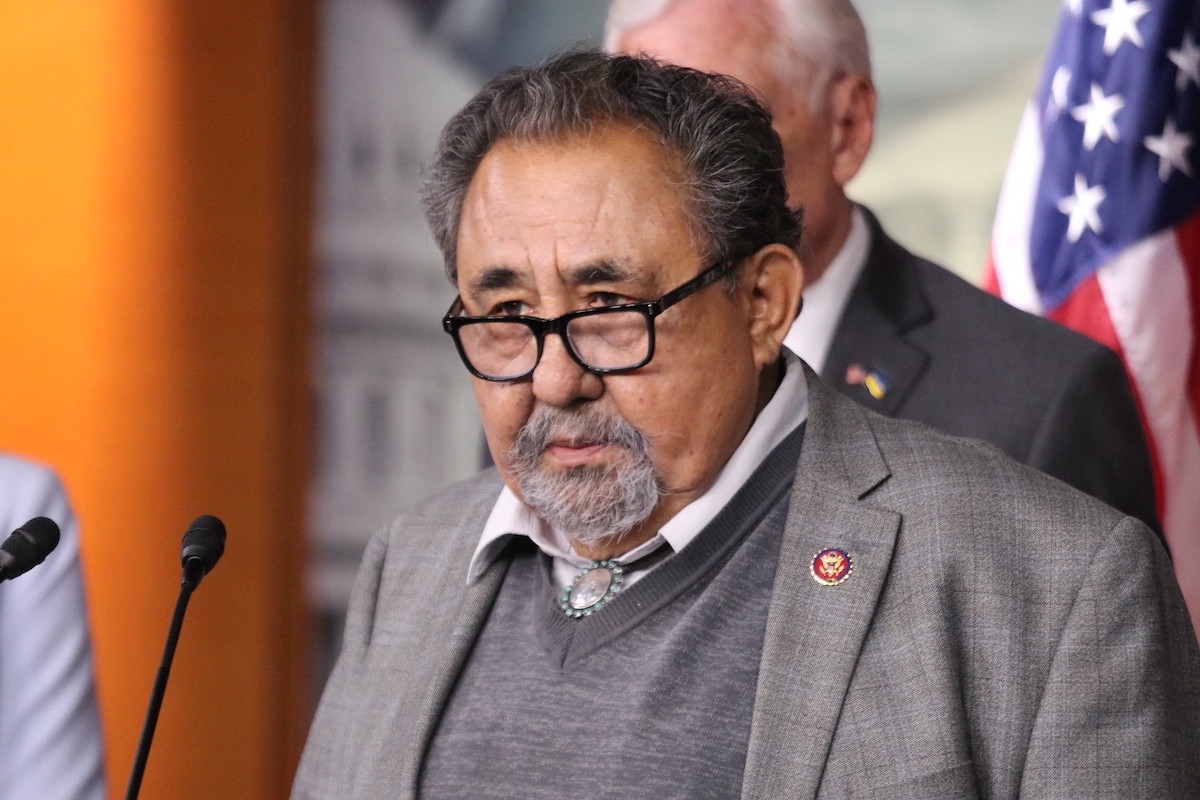

House Committee on Natural Resources Chair Raúl M. Grijalva (Public Domain)
Editor’s Note: Our main Puerto Rico correspondent Carlos Edill Berríos Polanco was assigned to cover the Saturday public forum in person, but he contracted COVID-19 late last week. In the interest of informing our readers who follow U.S.-Puerto Rico politics, on Monday, we asked our current 2022 summer correspondent Chantal Vaca to file the story. This is her report.
Last Saturday, four members of the House held a public forum to discuss their plan for deciding the future of the political status of Puerto Rico. The representatives sought to receive feedback on the recently proposed Puerto Rico Status Act Discussion Draft.
The draft —which has yet to be introduced in committee— outlines the process for what would be the first-ever binding plebiscite that would offer Puerto Ricans an avenue for putting an end to their over a century-old territorial status. Voters would have to decide between three options: statehood, independence or sovereignty in free association with the United States. The island’s current commonwealth status is not an option in the proposed draft.
In attendance were House Committee on Natural Resources Chair Rep. Raúl Grijalva (D-AZ), along with three women of Puerto Rican descent—Rep. Nydia Velázquez (D-NY), Rep. Alexandria Ocasio-Cortez (D-NY), and Puerto Resident Commissioner Jenniffer González (R-PR), a non-voting member of Congress.
For about four hours, groups of speakers, ranging from former politicians to leaders of political organizations, sat across the panel of federal legislators and spent five minutes sharing their opinions of the draft.
As anticipated, there was no overarching agreement over the future of the political status of Puerto Rico—although the predominantly shared sentiment from speakers was that the discussion draft was a good start to relinquishing themselves of colonialism.
“This draft bill, while not perfect, is a step in the right direction,” said Aníbal Acevedo Vilá, former governor of Puerto Rico from the island’s pro-commonwealth Popular Democratic Party (PPD).
About an hour into the hearing, before the second group of speakers even got started, political activist and former political candidate Eliezer Molina walked up to the rope that separated the speakers from the crowd. With his right hand pointing at Grijalva and the rest of the legislators sitting across from him, he said, “Yo estuve aquí con ustedes. Le dije que venían a vender una Ley PROMESA que no existe. Quebraron este país.” (“I was here with you all. I told you all that they were coming to sell a promise law that doesn’t exist. They broke this country.”)
Aquí cuando Eliezer Molina se metió a las vistas de hoy sobre el proyecto nuevo de estatus. pic.twitter.com/OHIw4fWarg
— Robinson Camacho Rodríguez (@RobiCamacho) June 4, 2022
Several people in the crowd followed Molina’s lead and stood next to him, shouting at the representatives. Grijalva asked them to have courtesy and to let them continue. After a few minutes, the crowd left and their shouts echoed in the Puerto Rico Convention Center in San Juan as they exited.
Among the major issues that the speakers had with the draft, the two most commonly raised were the question of citizenship and the distinction between free association and independence. Another concern was the possibility of losing Spanish as the primary language used in government, schools and business, especially if Puerto Rico gains statehood.
While the speakers shared the determination to take control of Puerto Rico’s political status, not everyone remained confident in the draft bill’s ability to enact statehood. Even if the majority were to vote in favor of it, Luis S. Herrero, a political consultant, said there aren’t enough votes in the Senate to make Puerto Rico the 51st state.
“Since 1898, Puerto Rican statehood has been a mirage, lip service to score cheap political points or to raise a few dollars for a campaign,” Herrero said. (His full testimony is featured here, along with two other testimonies.)
While Ocasio-Cortez called Herrero’s points about the Senate “legitimate,” she stood her ground in trusting the political process for Puerto Rico’s self-determination.
“We are in the messy process of trying to exercise some form of self-governance. It is imperfect. We’ll get to dead ends. There’ll be disagreements,” she said. “I think what we need to figure out for ourselves, at least, is what does a legitimate process for us look like?”
***
Chantal Vaca is a summer correspondent for Futuro Media based in New York City and a graduate of the Columbia University School of Journalism. Twitter: @VacaChantal



[…] after Rep. Alexandria Ocasio-Cortez (D-NY) traveled to Puerto Rico with three fellow House members to hold a public forum to discuss the new Puerto Rico Status Act Discussion Draft, Latino Rebels caught up with the New […]
[…] WASHINGTON, D.C. — House Majority Leader Steny Hoyer (D-MN) told reporters Tuesday that Natural Resources Committee chair Raúl Grijalva (D-AZ) now leads the new Puerto Rico Status Act efforts. […]
[…] members of the U.S. House of Representatives recently traveled to Puerto Rico to get feedback on the newly minted Puerto Rico Status Act, one more in an exhausting line of […]